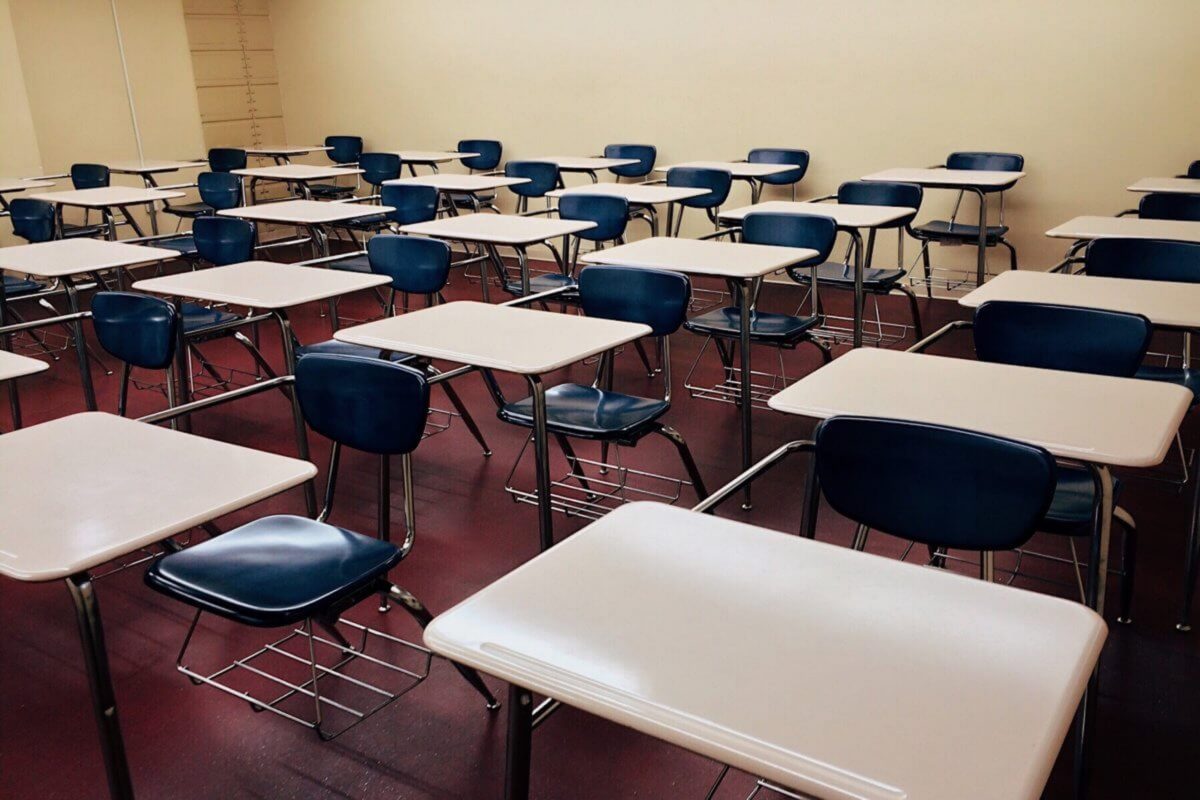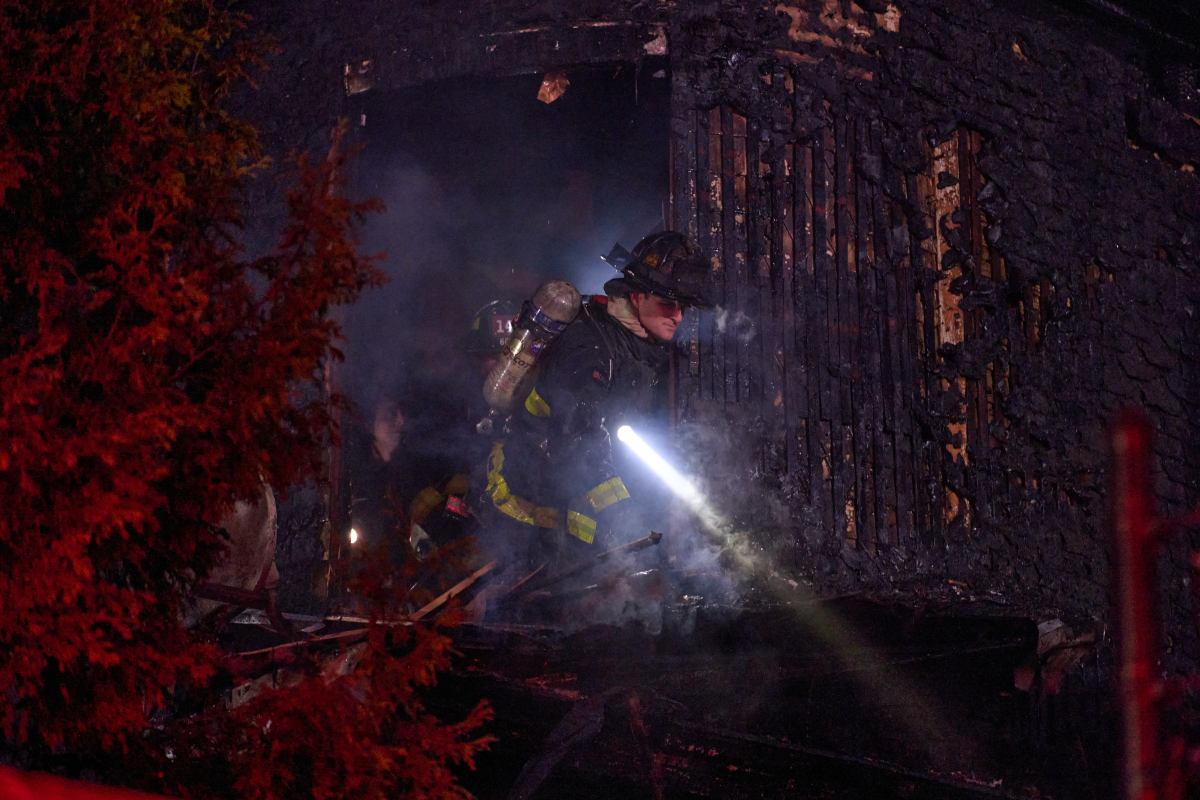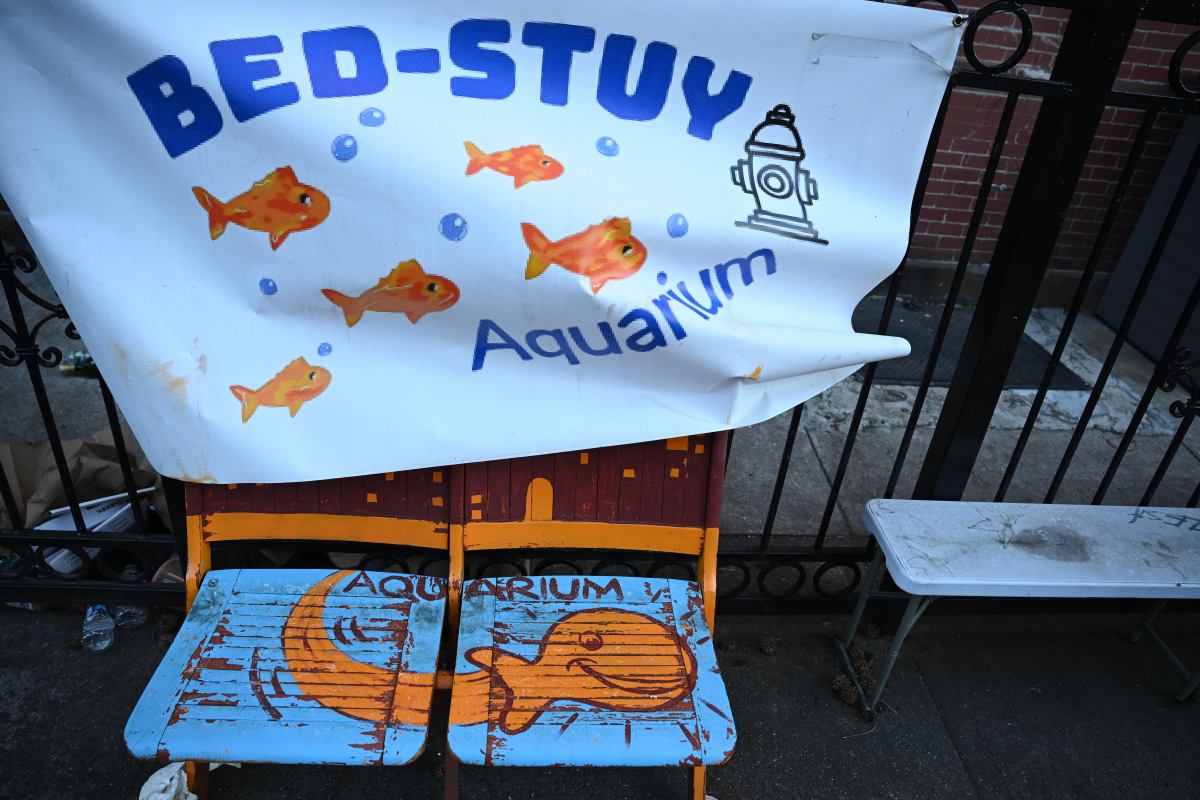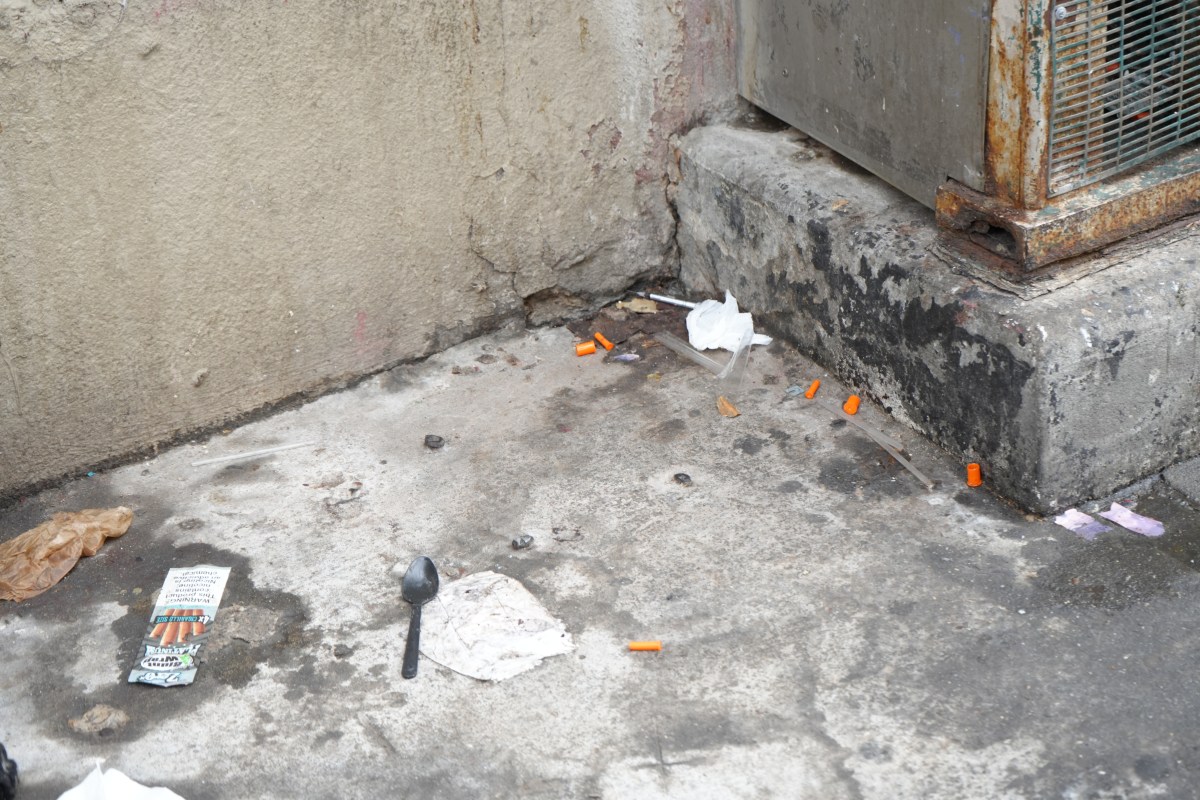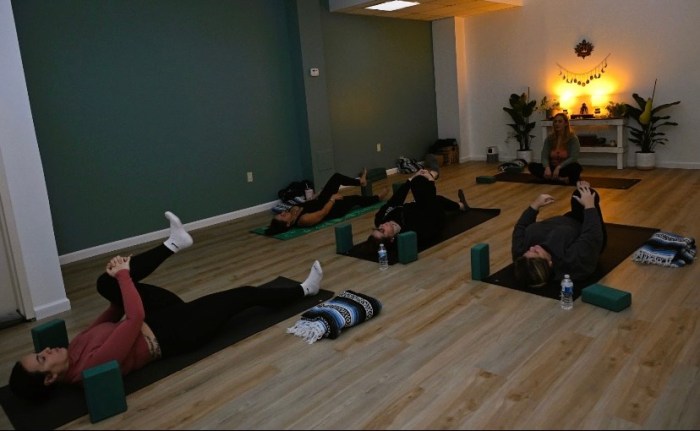Hundreds of Bay Ridge parents and educators are calling for the removal of the local school district’s superintendent, claiming that she has turned a blind eye to racism and special education violations within the district’s schools for years.
An open letter — signed by more than 200 parents, community members, and faculty members — claims that District 20 superintendent Karina Costantino failed to address complaints regarding racism and special education non-compliance within the district, which includes Bay Ridge, Dyker Heights, southern Sunset Park, and Bath Beach.
The district’s demographics have shifted dramatically over the last 20 years, with Chinese students making up 44-percent and Latino students accounting for nearly 27-percent of the schools’ population in a district that formerly was mostly white and Catholic, according to state data. But petitioners say the increased diversity has not influenced the top administrator’s attitude towards race.
“She is out of touch with the needs of our community because she does not respect the voices of those she serves. It’s past time for her to go,” the letter reads.
“It just seemed like nobody cared”
Speaking with Brooklyn Paper, parents described a culture that neglected students with special needs.
“The way I describe this district, especially with students with disabilities, is that they throw up a wall of can’ts and won’ts,” said Bay Ridge resident Francine Almash, who said she’s had to homeschool two of her three children because of the district’s inability to cater to special needs.
Almash’s second-oldest child is autistic — but for years, school staffers at PS 102 claimed he had behavioral problems rather than a developmental disorder, she said.
“[My middle child] wasn’t diagnosed with autism until he was in third grade, I think,” she said. Her son is Black, which she believes played a role in the late diagnosis. “He was constantly being coded as having behavioral problems, constantly as being emotionally disturbed.”
Many teachers at PS 102 weren’t properly trained to manage the needs of her now 13-year-old son, and often punished him instead of addressing his needs, Almash claimed.
“It was a lack of training, a lack of understanding, a lack of willingness to understand that the problem doesn’t lie with him,” she said, noting that staffers locked him in classrooms and wrapped him in a weighted blanket when he had outbursts, and sometimes rewrote his special needs classification.
Following years of conflict, the district couldn’t find her son an appropriate placement at any school, so now Almash is teaching him at home along with his 12-year-old brother, who’s dyslexic.
“I did not want to homeschool my kids. And it was incredibly difficult, as a single parent especially,” she said. “It just seemed like nobody cared.”
Almash isn’t the only parent who’s voiced concerns about special education in the district. A 2019 state comptroller report found that District 20 was one of 13 districts citywide with the highest rates of IEP-non-compliance, meaning that its schools often do not assign or follow through on a disabled student’s Individualized Education Program.
“I had to fight them for [my daughter’s] services to the point where I actually went to court,” said Bay Ridge resident Tamara Stern, whose 10-year-old daughter has a speech disability.
Stern said that the city’s Department of Education refused to pay for the speech therapist who worked best with her daughter and pushed her to choose a cheaper therapist in their network. She refused, and the DOE took her to court. Stern won the case, but the battle continued while she was at PS 102, she said.
“At one point they wanted me to decrease the amount of time she was going to speech,” she said, adding that her husband, a middle school teacher, doubted that their daughter was getting enough care. “[My husband] felt that they weren’t really on top of it.”
Following a push from Stern and her husband, the school has worked continuously with the family to craft their daughter’s IEP. But, Stern worries about families without the time or resources to push for their child’s needs.
“I wish the DOE gave you something, like a how-to. Because if you don’t know anybody, if you don’t know what to do, you’re going in blind,” she said.
Accusations of racism and Islamophobia
Other parents told stories of allegedly racist and Islamophobic incidents within some of the district’s schools that administrators inadequately addressed or perpetuated.
At PS 264, which serves a largely Muslim population, staffers often lead Muslim children who fast during the month of Ramadan into another room during lunchtime so they don’t have to watch other students eat.
But, one mother said that a cafeteria staffer punished her son for laughing during a lunch break by removing the nine-year-old fourth grader from the room where he and other Muslim students were fasting and forcing him to watch students eat in the cafeteria. When she went to pick him up from school, her son was distraught.
“He burst out in tears,” said Zaman Mashrah.
Mashrah demanded that the DOE investigate the incident, but the investigation ran months late and ultimately cleared the staffer of wrongdoing — despite students’ testimonies confirming that the incident occurred, she said.
“My son plus several other students they questioned said that this happened, this occurred,” said Mashrah, who eventually filed a civil rights lawsuit with the Council of American Islamic Relations against the DOE. “But [the DOE] still decided to stand with their employee.”
The event wasn’t Mashrah’s only brush with anti-Muslim bias, she said. Last spring, during Ramadan, she wanted to fill the lobby of PS 264 with Ramadan-themed decorations, but the school’s administration allegedly tried to roadblock the project.
“I fought for almost a month to do something as simple as hanging moons and crescents,” she said.
Superintendent Costantino and school’s principal claimed that the project went against DOE guidelines regarding religious instruction in schools — even though the school celebrated other holidays, like Christmas and Hanukkah, Mashrah said.
“Every time there was some sort of holiday, they put up some sort of decor,” Mashrah said. “They even brought Santa Claus to the school to take pictures … he’s a religious figure.”
The school finally acquiesced and allowed Mashrah to post the decorations for the last week of Ramadan, although they took down a banner she made because it said “fasting” on it, she said.
Other parents also said their children had suffered acts of racism in the district’s schools that the administration inadequately addressed, such as racist name-calling and bullying.
“My son was 9 when he was first called the n-word,” said Almash, whose eldest son experienced anti-Black racism at PS 102 and then McKinley Junior High School. “He also experienced being told by other students that he shouldn’t bother studying because he’d probably grow up to be a drug dealer and that his opinion on a group project didn’t matter because he’s Black.”
Almash said she would complain to teachers and administrators at both schools following the incidents, but the schools never made a concerted effort to curb the perpetrators’ behavior.
“At both places, the response was always just an offer to speak with my son — including being called into the AP’s office and asked if he felt safe at school, which of course terrified him,” she said. “There was never an attempt to handle it as a widespread or systemic issue.”
An unresponsive administration
While many of the parents’ complaints don’t directly stem from the superintendent and the district’s community education council, many parents feel that Superintendent Costantino has repeatedly allowed issues like racism and special education noncompliance to fester.
“Her office is supposed to be where the buck stops if you’re a parent and you need help,” Almash said. “She’s incredibly unresponsive.”
Several parents alleged that after complaining repeatedly to the schools and Costantino about racism and IEP-non-compliance, administrators would send the Administration for Children’s Services to their homes and neglect their children’s needs as a form of retaliation.
“There’s a lot of retaliation against parents. What I found is that if you follow the path you’re supposed to … everything was this circular path back to the principal of the school,” said Almash, who added that the school called ACS on her twice following incidents with her autistic child. “Basically, both times [the ACS workers] told me that they know that schools did this, but still it was on me to prove that I did nothing wrong.”
Mashrah said that many other Muslim parents have told her about Islamaphobic incidents, but are afraid to voice their concerns.
“I have so many Muslim parents who have come to me saying that this happened to my son but I’m afraid to speak about it because of retribution,” she said.
To make matters worse, parents lambasted the letter Superintendent Costantino sent families two weeks after George Floyd’s death, which lamented the “divisiveness of racism” and did not condemn Floyd’s killing.
“I was deeply offended by that,” said Stern, who is Black. “It was watered down; it didn’t really address the issue … That made me completely have to sit down and reevaluate the time I wanted to dedicate to this district.”
The parents’ letter and petition also call for the DOE to remove a member of District 20’s community education council — an elected body held by parents — in part because of a series of controversial Facebook posts following George Floyd’s killing. In one post, Vito LaBella, a retired police officer, called Black Lives Matter a “dog-whistle” for injuring cops, and said he preferred to use the phrases “All lives matter” and “Black lives matter too.”
“Everyone is against bad policing. I’m pro-good policing,” LaBella told Brooklyn Paper, clarifying that he believes only some of the Black Lives Matter movement has taken to attacking cops and that he strongly condemns the police killing of George Floyd. “Our men and women in the police department are being targeted for assassination.”
He added that he thinks children calling each other slurs does not always indicate a culture of unchecked racism.
“Kids talk smack to each other, funny thing that hasn’t changed in a thousand years,” he said. “My son has been called names, being a dumb white boy. At some points it’s kids talking, at some point, they cross a threshold.”
He said he “wasn’t sure” if the number of racist incidents in District 20 crossed that threshold, but agreed with Superintendent Costantino’s approach to addressing complaints of racism.
“The best thing to say is we condemn hate speech against everybody,” he said, adding that she has received undue backlash for the George Floyd letter. “I think it was a draft letter that went out and people are parsing this unsigned draft letter. They’re bullying her.”
Superintendent Costantino did not respond to a request for comment. The DOE and Community Education Council 20 did not respond to requests for comment by press time.
This story first appeared on BrooklynPaper.com



